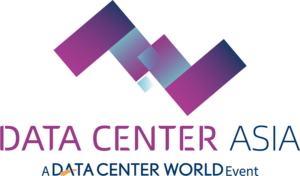Cloud computing refers to delivering IT services over the internet, while a data center is the physical facility that hosts servers, storage, and networking equipment to provide cloud services, enterprise applications, and digital infrastructure.

Join Data Center Asia Malaysia 2025
Attend Data Center Asia Malaysia 2025 (DCA-MY) from 18–20 November at MITEC, Kuala Lumpur, part of the region’s largest tech event, Smart Nation Expo, and connect with data center operators, IT leaders, and cloud innovators to explore cutting-edge solutions in AI, cloud, 5G, edge computing, and sustainable infrastructure—unlock insights and partnerships to drive your business in Southeast Asia’s digital transformation.Secure your spot as a visitor or exhibitor!
Data Center vs. Cloud Computing: Definition
Data Center is a physical facility that houses an organization’s IT infrastructure, including servers, storage systems, and networking equipment. It can be on-premises or hosted off-site.
Cloud Computing is a virtualized environment that delivers computing resources over the internet, allowing users to access and manage data and applications remotely.
Data Center vs. Cloud Computing: Key Differences
- Ownership and Control
- Data Center: Typically owned and operated by the organization, offering full control over hardware and infrastructure.
- Cloud Computing: Managed by third-party service providers, with users leasing resources and services on-demand.
- Scalability
- Data Center: Scalability requires physical upgrades, such as adding more servers or storage devices, which can be time-consuming and costly.
- Cloud Computing: Offers on-demand scalability, enabling organizations to adjust resources as needed without significant physical changes.
- Cost
- Data Center: Involves significant upfront capital expenditures for hardware, facilities, and maintenance. Operational costs include electricity, cooling, and staffing.
- Cloud Computing: May have lower upfront costs, with pricing models based on usage. Operational costs can be more predictable, with pay-as-you-go options.
- Security and Compliance
- Data Center: Provides physical security and control over data access. Compliance with regulations depends on the organization’s policies and practices.
- Cloud Computing: Offers robust security features through virtualization and can be configured to meet specific compliance requirements.
- Management and Maintenance
- Data Center: Requires in-house or contracted personnel for ongoing maintenance, upgrades, and troubleshooting.
- Cloud Computing: Managed by the service provider, with automated tools facilitating maintenance tasks.
- Flexibility
- Data Center: Less flexible due to physical constraints; changes often require significant time and investment.
- Cloud Computing: Highly flexible, supporting various workloads and applications with the ability to quickly adapt to changing business needs.
Data Center and Cloud Computing: How to Choose
Opt for a Data Center if your organization requires complete control over physical infrastructure, has specific compliance needs, or operates in a regulated industry. Opt for Cloud Computing if you seek scalability, flexibility, and cost-efficiency, and are comfortable with virtualized environments managed through advanced technologies.
